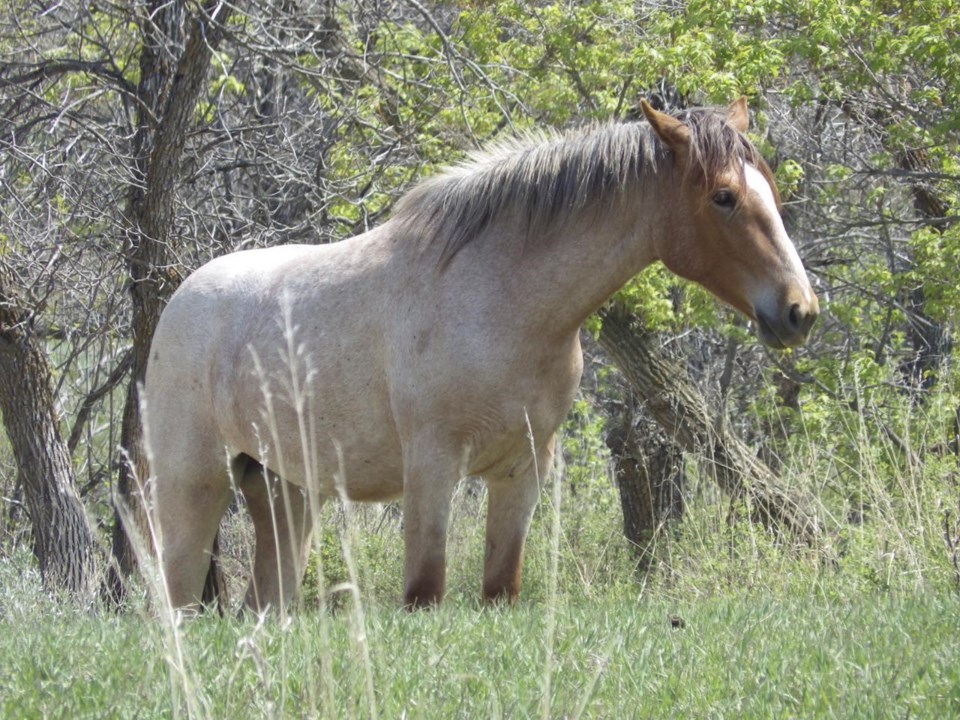BISMARCK, N.D. (AP) — The National Park Service has turned to the public to help decide whether the famous wild horses in North Dakota's Theodore Roosevelt National Park should stay or go.
The federal agency launched a 30-day public comment period on Monday. It also released a draft environmental assessment of the wild horse herd that said removal of the horses would benefit native wildlife and vegetation, but may lessen the experience of visitors who come to the park to see the horses or cattle, the Bismarck Tribune reported.
North Dakota Republican Gov. Doug Burgum said in a statement Tuesday that he will continue urging NPS to keep the wild horses in the park.
“These horses are a hugely popular tourist attraction, embodying the untamed spirit of the Badlands while also reminding us of the deep ties to Roosevelt’s ranching and conservation legacy," Burgum said.
He added that “wild horses roamed those lands during Roosevelt’s transformative years in the Badlands, when President Truman signed the bill creating the park in 1947 and when it received official national park status in 1978.”
The federal agency's proposal has worried advocates who say the horses are a cultural link to the past and disagree with park officials who have branded the horses as “livestock.”
Visitors who drive the scenic park road can often see bands of horses, a symbol of the West and sight that delights tourists.
Removal would entail capturing horses and giving some of them first to tribes, and later auctioning the animals or giving them to other entities. Another approach would include techniques to prevent future reproduction and would allow those horses to live out the rest of their lives in the park.
A couple bands of wild horses were accidentally fenced into the park after it was established in 1947, Castle McLaughlin has said. In the 1980s, McLaughlin researched the history and origins of the horses while working as a graduate student for the Park Service in North Dakota.
Park officials in the early years sought to eradicate the horses, shooting them on sight and hiring local cowboys to round them up and remove them, she said. The park even sold horses to a local zoo at one point to be food for large cats.
Around 1970, a park superintendent discovered Roosevelt had written about the presence of wild horses in the Badlands during his time there. Park officials decided to retain the horses as a historic demonstration herd to interpret the open-range ranching era.
The Associated Press



